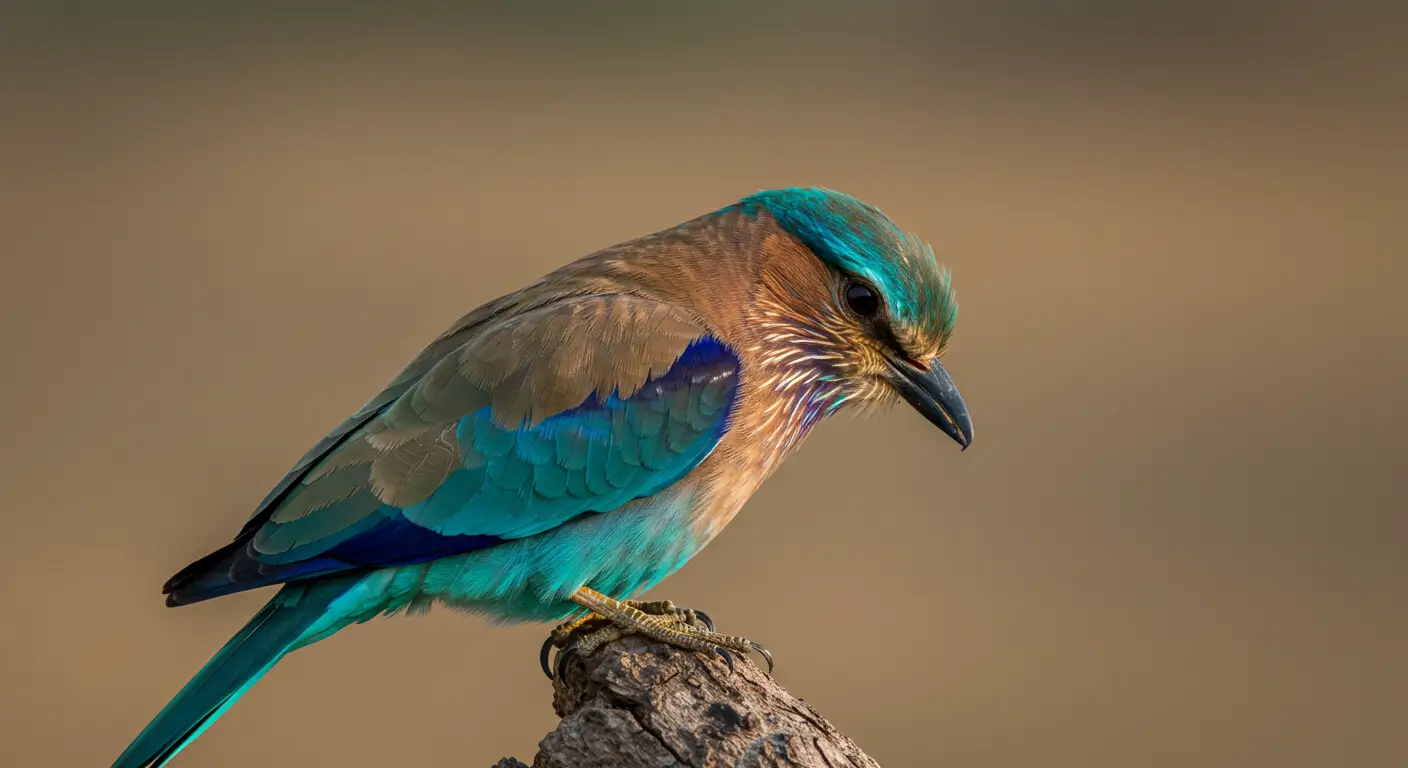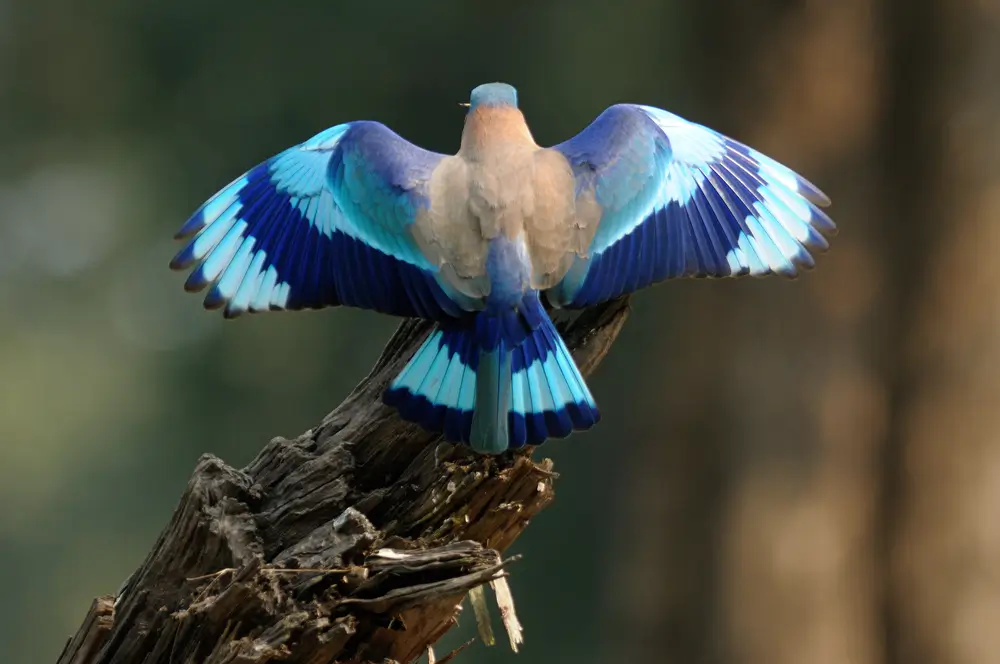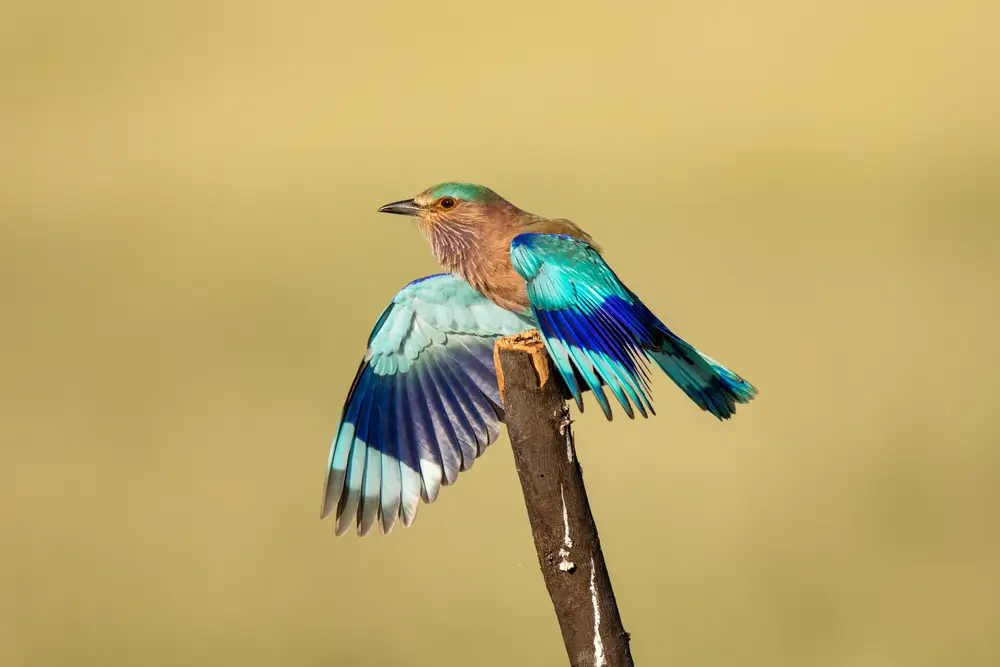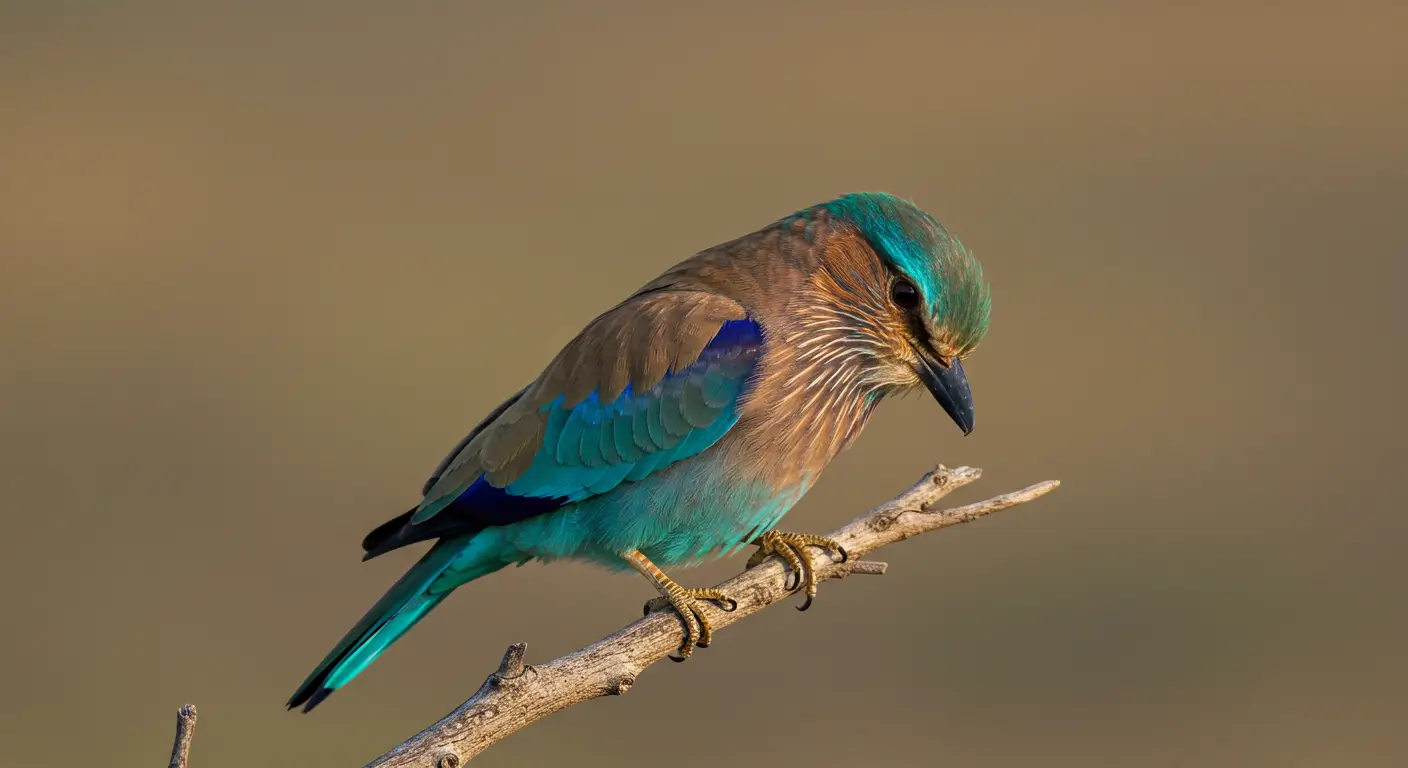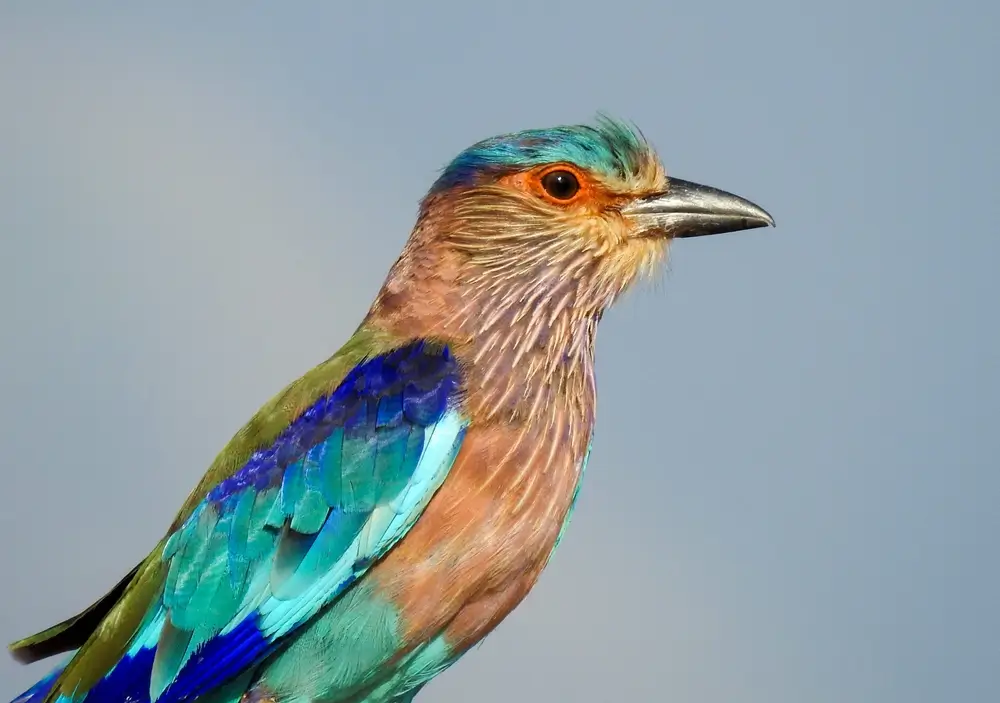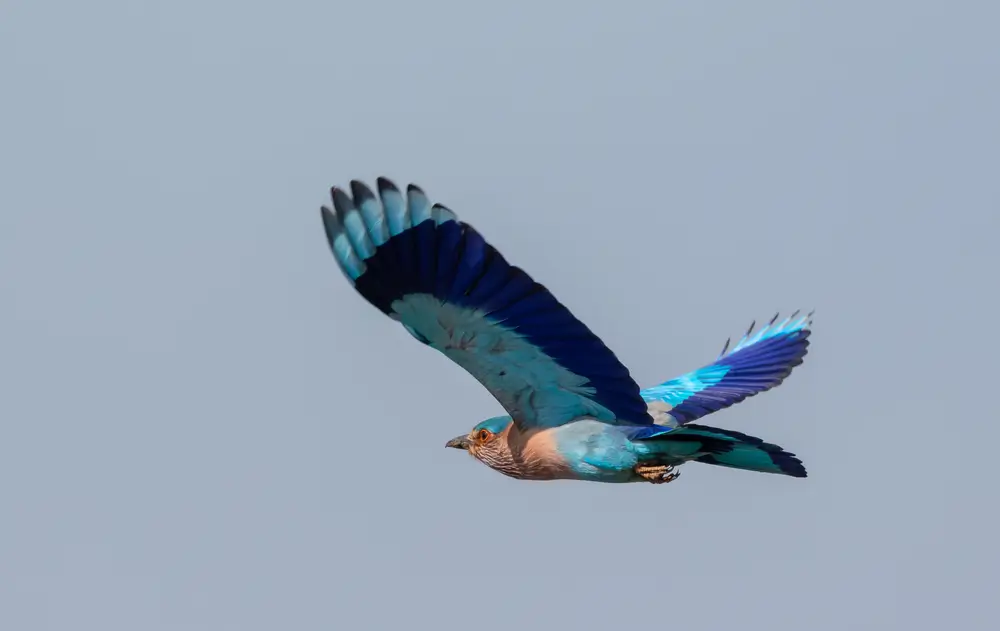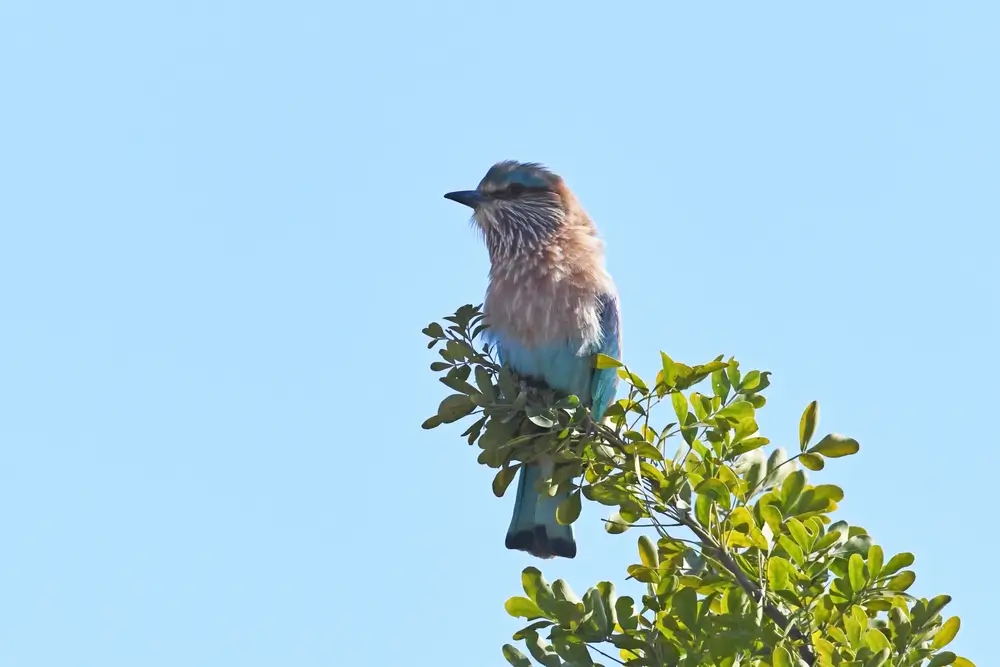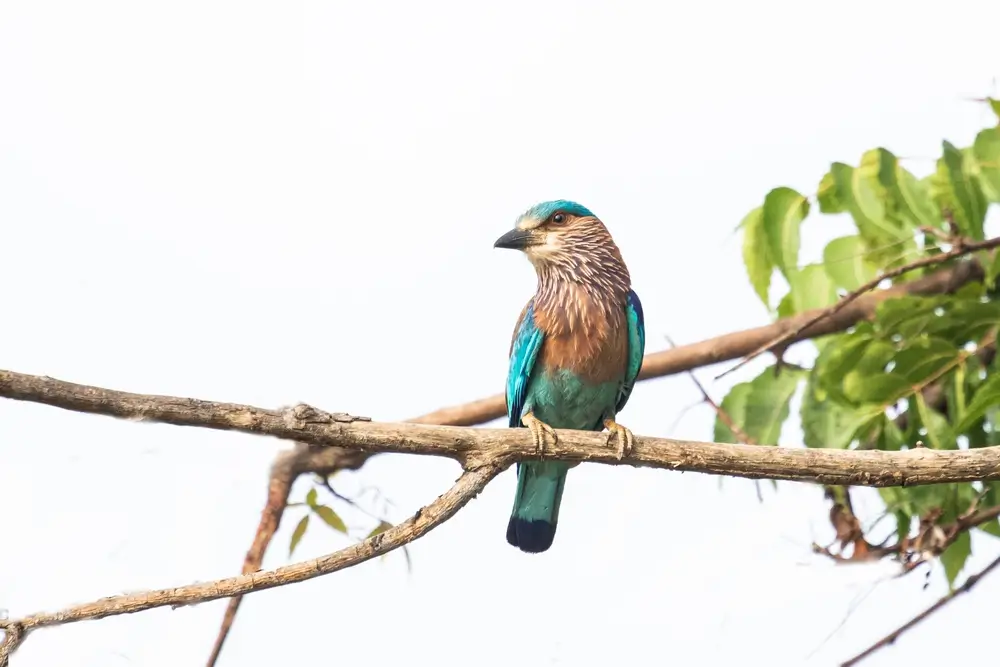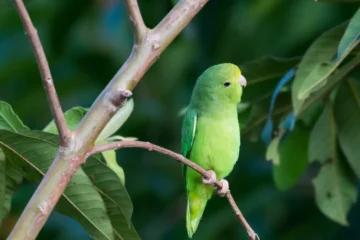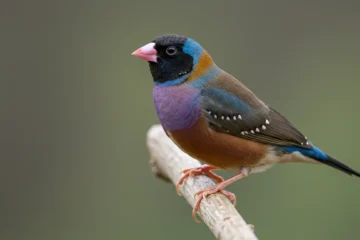The Indian Roller is a colorful bird known for its bright blue and brown feathers. It is commonly found in South Asia but is sometimes spotted in the USA in aviaries or bird sanctuaries. This bird is famous for its acrobatic flight during the breeding season. Indian Rollers mainly feed on insects, small reptiles, and amphibians. Their striking colors and unique flying patterns make them a favorite among bird watchers.
Characteristics of Indian Rollers
Here are some unique characteristics of these birds which distinguish them from other bird species.
The Indian Roller usually lives around 8–10 years in the wild while it can live up to 15 years in captivity with proper care. Since it’s not native to the USA, its lifespan there depends on specialized care in aviaries. These birds possess some surprisingly interesting features which are different from other birds and capture the attention of viewers. The Indian Roller is sometimes confused with the Blue Jay due to its vibrant blue feathers and striking appearance though native to Asia. Males perform incredible mid-air somersaults during mating season which makes them one of the most fascinating birds to watch. Unlike most birds, it rolls and tumbles through the air while flying, which is how it got its name. It has a rough, crow-like call that stands out in the wild, very different from the sweet songs of American songbirds. The Indian Roller prefers catching insects mid-flight which makes it a natural pest controller in farmlands. It fiercely defends its territory despite being a medium-sized bird. It’s ferocious nature often pushes it to challenge larger birds. Its feathers appear turquoise in bright sunlight but shift to a deep blue in the shade, making it a visual wonder. This bird thrives in open fields, grasslands, and even urban parks rather than thick forests unlike many colorful birds. It lays eggs in tree holes, old woodpecker nests, or even abandoned buildings instead of building elaborate nests. It is most active at dawn and dusk, filling the sky with its loud and raspy calls. The Indian Roller often settles on electric wires, poles, and fences near human settlements unlike many shy birds. These birds are mostly native to Asia and they are normally not seen in the public parks and in the wild. These birds are mostly observed in the private captivities because they are brought from another region. These birds are difficult to capture because they are extremely rare and are difficult to be found on the public places for getting the comfortable shots. The Indian Roller is a colorful bird found in Asia, known for its vibrant blue wings and acrobatic flight displays. No, the Indian Roller is not native to the USA. It is mainly found in India, Sri Lanka, and surrounding regions. It gets its name from its unique rolling flight patterns during courtship displays It belongs to the same family as kingfishers and shares similarities with the American Belted Kingfisher. It feeds on insects, small reptiles, and amphibians, often catching prey mid-air. It is considered sacred in Indian culture and is the state bird of multiple Indian states.
General Characteristic
Indian Roller Features
Scientific Name
Coracias benghalensis
Size
Medium-sized, about 10–11 inches (26–27 cm)
Weight
Around 150–175 grams
Color
Bright blue wings, brownish head, and greenish back
Habitat
Open grasslands, forests, and agricultural fields
Diet
Mainly insects, small reptiles, and amphibians
Vocalization
Harsh calls, often heard during flight or in the breeding season
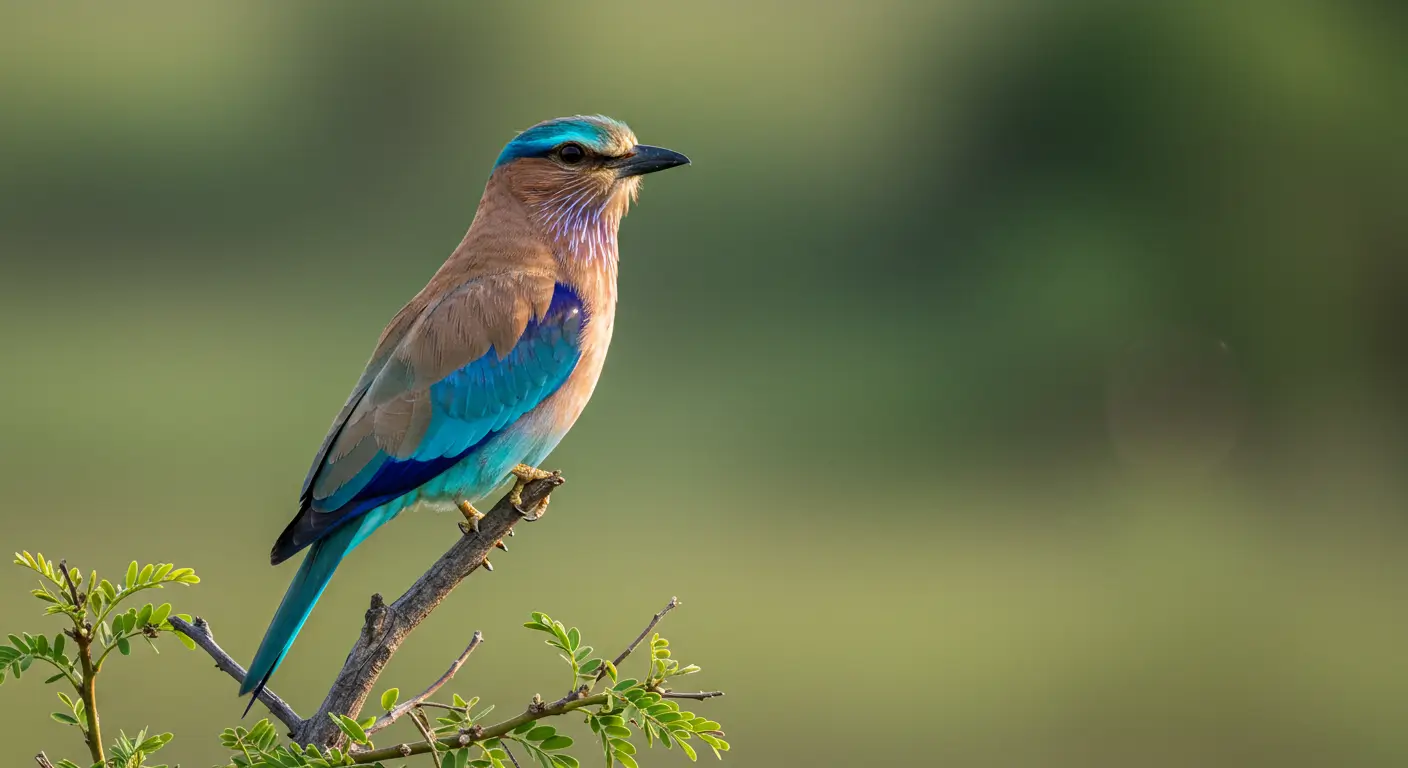
Life Span of Indian Roller
Indian Roller Images
Fascinating Features About Indian Roller
1. Nicknamed “Blue Jay” in the USA
2. Stunning Aerial Acrobatics
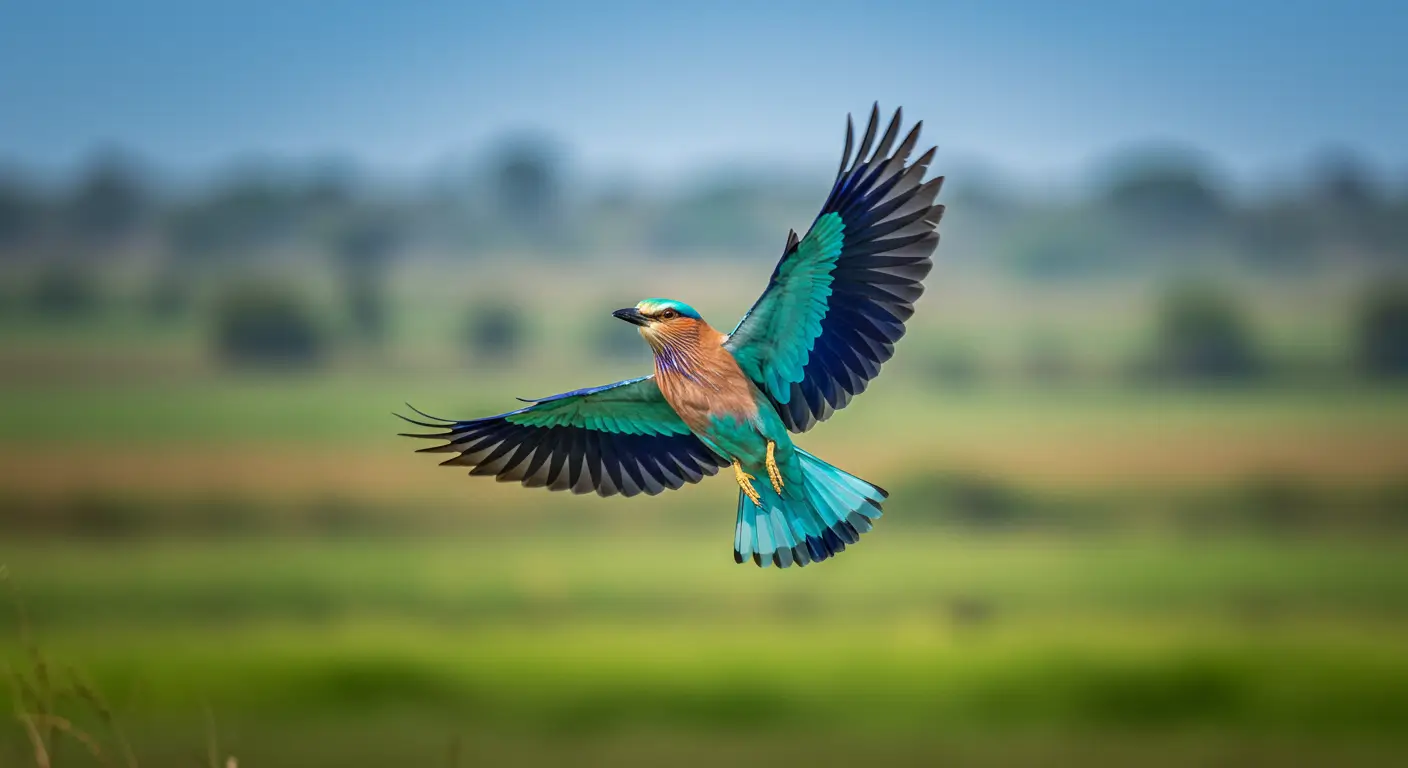
3. Unique Rolling Flight Pattern
4. Loud and Distinctive Calls
5. Expert Insect Hunter
6. Surprisingly Aggressive for Its Size
7. Can Change Colors in Different Light
8. Prefers Open Lands Over Dense Forests
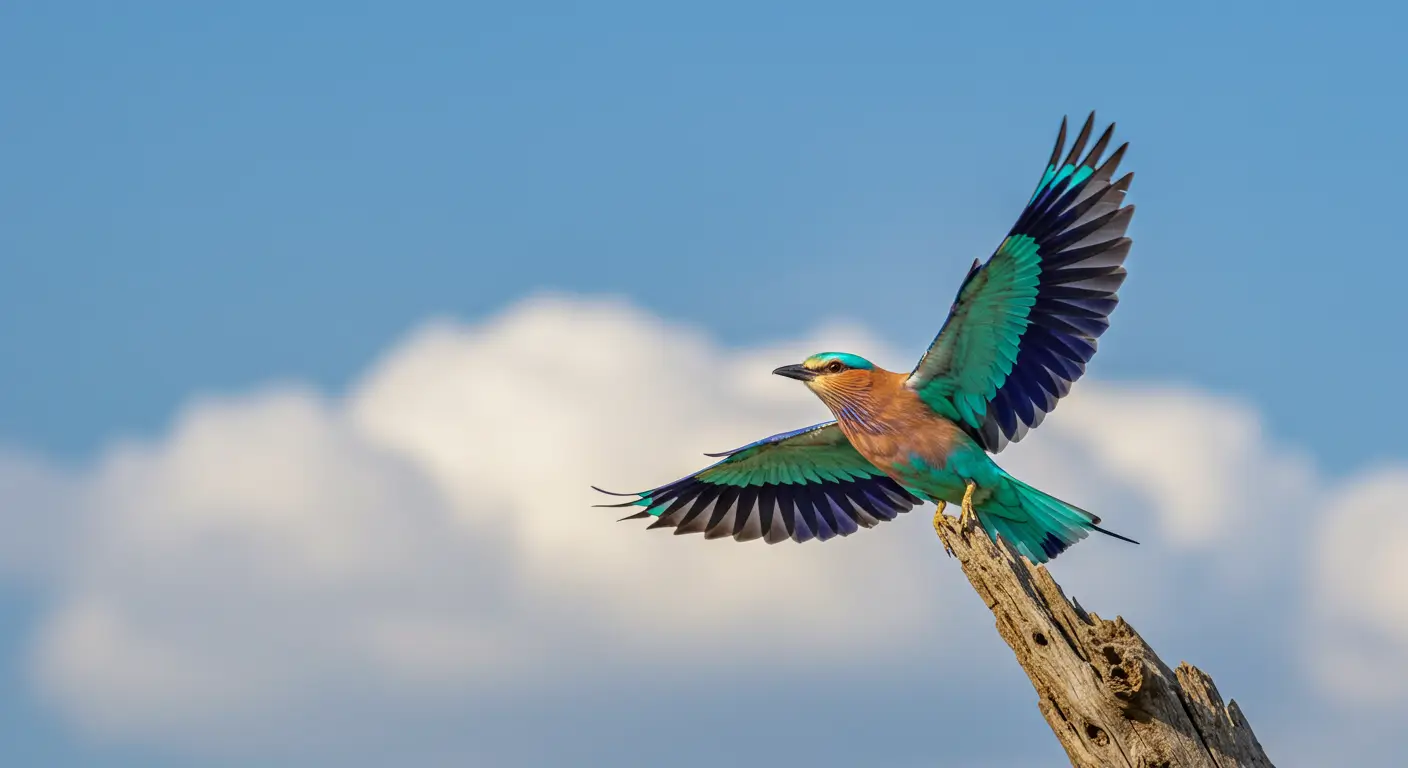
9. Surprisingly Low Nesting Effort
10. Noisy During Sunrise and Sunset
11. Not Afraid of Humans
Sightseeing of Indian Roller in USA
Photography Tips for Indian Roller
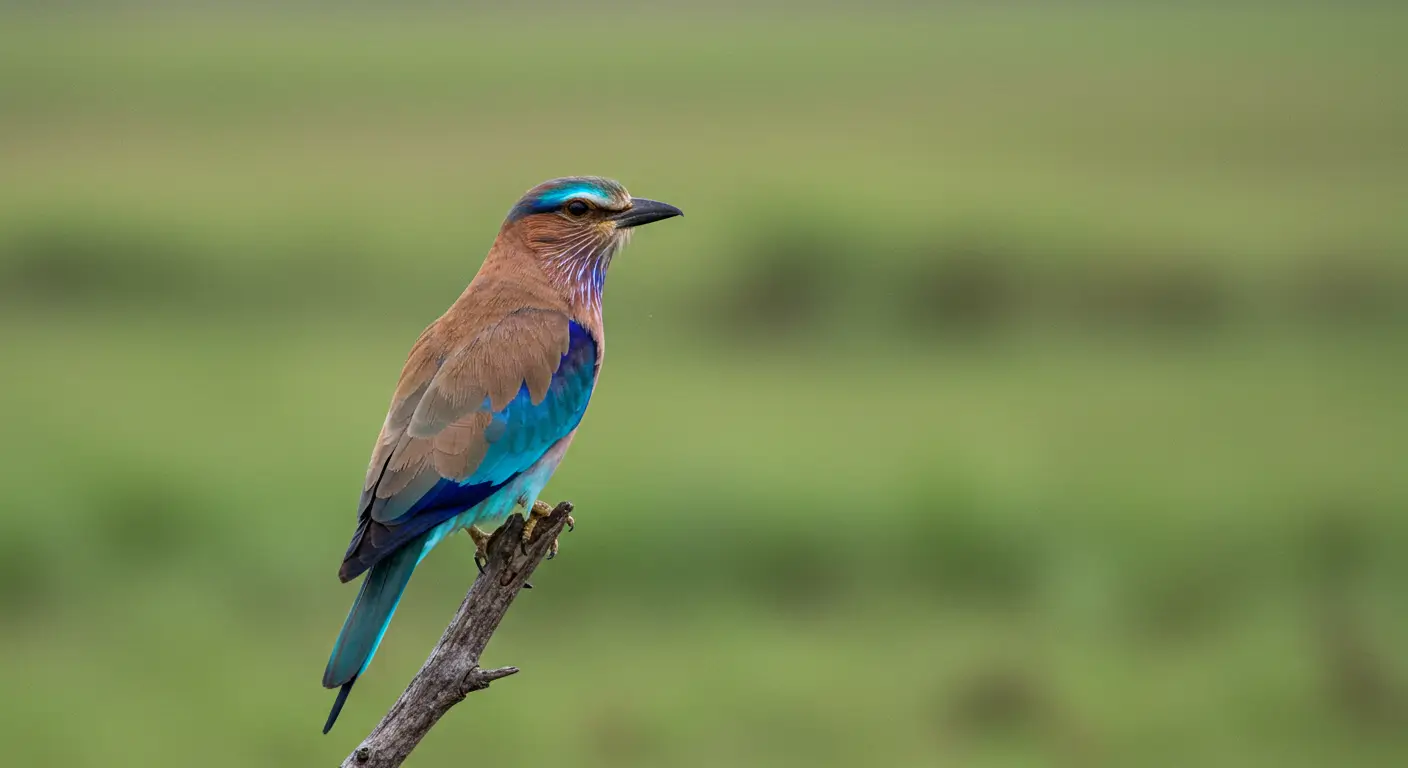
Most Asked Questions
1. What is the Indian Roller bird?
2. Can you find the Indian Roller in the USA?
3. Why is the Indian Roller called “roller”?
4. Is the Indian Roller related to any birds in the USA?
5. What does the Indian Roller eat?
6. Why is the Indian Roller important in India?

